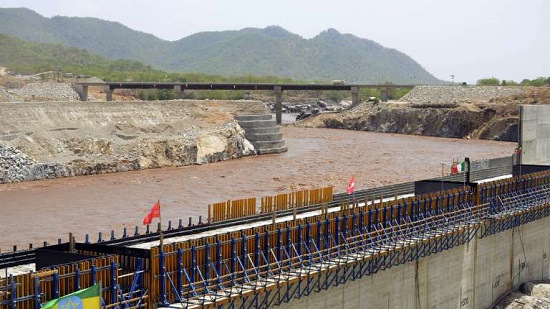Egypt has received an invitation to contract with a consultation office assigned to carry out technical studies related to the Grand Ethiopian Renaissance Dam (GERD), spokesperson for the Ministry of Foreign Affairs Ahmed Abou Zaid announced on Tuesday.
Egypt will sign the contracts in September in Khartoum, Sudan. Abou Zaid told reporters that the signing will be attended by the ministries of water resources of Egypt, Sudan, and Ethiopia.
The consultation office is assigned to carry out technical studies that will determine the riskiness of the dam for Egypt and Sudan.
Professor of water resources Nader Nour El-Din told Daily News Egypt that the consultation office’s studies will not be fruitful, as the 12-month study will begin in December. Ethiopia will have completed construction well before the study is over.
Nour El-Din said: “This is a regional office, not an office of an international authority. Egypt must hold talks with Ethiopia to guarantee that its current share of water will stay the same following completion of construction, but the state is paying money for useless consultation offices instead.”
He concluded that Ethiopia is trying to gain extra time by inviting countries to consult over the dam, while it continues building it.
Recently, Ethiopian water minister Ato Motuma Mekassa noted in an interview with Egypt’s state-run Akhbar Al-Youm that his country is willing to work to limit the negative effect of the dam on Egypt and Sudan.
In the interview, Mekassa revealed that Ethiopia has not yet begun to store water in the GERD reservoir as the timeline for this has yet to be set.
The minister stressed that Ethiopia is ready to cooperate with Egypt and Sudan to decrease the negative effects of the under-construction dam.
“We are ready to reduce any negative effect if it is proven by studies,” he said, adding that the technical studies offices will work for 11 months after the contracts with them are signed. Meanwhile, construction of the dam continues.
Minister of Water Resources and Irrigation Mohamed Abdel Aaty said earlier this month that Egypt is facing a water shortage crisis, though this shortage is not pertaining to the GERD.
Abdel Aaty said that the shortage is a result of the significant increase in Egypt’s population, as the share for each individual saw a decrease. However, he said that this shortage is being filled by other water resources such as rain and groundwater.
The GERD, of which 70% has been completed, has strained relations between Ethiopia and Egypt since construction began in 2011, with relations reaching their lowest point in 2013.
Conversely, Abou Zaid previously told Daily News Egypt that the GERD has had no effect whatsoever on the bilateral relations between Egypt and Ethiopia.
In early June, Egypt’s Foreign Ministry said it is finalising the deals with the consulting agencies to assess the impact of the GERD. Last year in December, Egypt, Ethiopia, and Sudan signed the Khartoum Document addressing ways to enforce and execute the declaration of principles.



